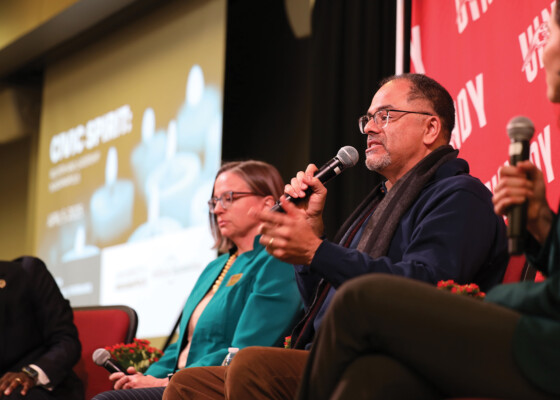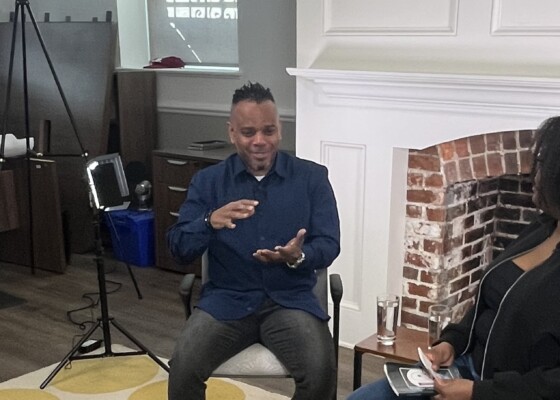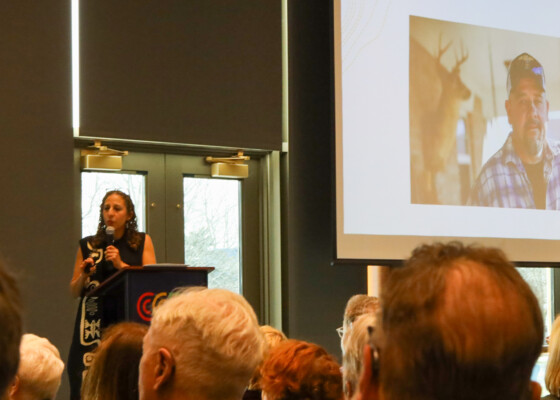War, food and life
April 15, 2011For someone who grew up in a farmhouse filled with the smells of pies baking, chicken frying in the skillet, and dough rising in bread pans, it was indeed a…
For someone who grew up in a farmhouse filled with the smells of pies baking, chicken frying in the skillet, and dough rising in bread pans, it was indeed a different world, only a few years later, to be in the midst of an African civil war, trying to save the lives of children suffering from extreme malnutrition.
Our parents served out their lives in the gender roles expected of their generation. On our Jay County farm, our mother was in charge of gardening, canning, cleaning the eggs for sale, and preparing all-homemade meals that neighbors and relatives still talk about. Her pies alone make my cousins, decades later, recall their favorites. (I had no favorites – I simply loved her pies. Every one of them.)
With food a topic truly on our lips, the required component of every P-TA or Farm Bureau meeting, church gathering, and family reunion, it is not surprising that my book of poetry, Marjorie Main: Rural Documentary Poetry, which focuses on growing up on our farm in the 1940s and 1950s, often mentions food. One of those poems, “I Never Ate Chicken Livers As A Group,” serves as one of 10 posters of my photos and poetry on display during April at Indiana Humanities.
The same week I graduated from Indiana University, I began Peace Corps training to be a teacher in Nigeria. Less than a year after arriving in the Eastern Region of that country, it seceded to become the Republic of Biafra. We were evacuated, after the civil war began. I served my second Peace Corps year in Malawi and then returned to work with the Red Cross near the front lines, So, only two years after leaving my home state, I was a member of a food/medical team operated by the International Committee of the Red Cross.
We were dealing with hundreds of ill children every day, many of whom were suffering from kwashiorkor. This severe form of malnutrition often was a predictor that the child could not be saved; it was simply too far gone. But, we still tried, plying it with injections. Then, I would force its mouth open and slowly give it liquid medicine, get one tablet down its throat, and hand the remainder of the week’s supply to the mother, with instructions. Then, carrying her child, its medications, and a bag of food, she would walk home, many miles from the clinic. We hoped she did not return, empty-handed, the next week. Another poster came out of my months with the Red Cross: “Biafra” shows my photo of a child with kwashiorkor and my poem on my wartime experiences.
My book about my experiences in the Nigeria-Biafra Civil War, with flashbacks to my year in the Peace Corps in this same area of Nigeria/Biafra, War Stories: A Memoir of Nigeria and Biafra, was a basis for my libretto for the opera, “Biafra,” that too deals with the devastation of war on those most unable to save themselves: the children.
An excerpt from War Stories provides a look at one short journey that has long remained sharply in my memory:
I am carrying a dead baby. I have never done this before. Last night, the woman stayed in this house with her baby on an I-V. Brace [the team doctor] insisted on sleeping downstairs near them so he could be awakened if anything was wrong. Olive [one of the team nurses] wanted to take his place, but he said no. The baby lived through the night, but this morning while we were getting dressed, it died. The mother cried out when Brace confirmed what she feared. The other three arranged to go to our clinic today in the one Land Rover and I am assigned the task of taking her and the baby near her village.
Brace is very specific. I am not to take her all the way home. She lives about four miles off the main road and he is afraid there might be Biafrans, or even deserting Nigerians, who will take the vehicle and who might bump me off in the process. I don’t think that is likely since it is stark white with large red crosses on all four sides and even on the roof. But when I mention that, it doesn’t faze him. He mentions land mines on the dirt road as another possibility, and that convinces me, finally, that I must not drive the extra few miles.
I take the baby from the cot. It reminds me of picking up a piece of Styrofoam for the first time. Your arms go up sharply when they are confronted with a lot less weight than they were expecting. The mother gathers her few belongings while I hold the baby and follow her outside. I am glad to be able to hand it over to her when she is quietly sitting on the front seat. A cruel irony is here: the baby’s surprisingly light weight comes to me in comparative images: baked egg whites. Meringue. Food. Nothing but food.
* * * *
We ride in silence. I had never noticed before that the keys banged so hard against the steering column. I hear everything. The shifting of gears. The wooden boxes in the back of the van sliding into one another. I imagine I hear the child breathing.
I pull off the paved main road and stop at the beginning of the dirt road leading to her village. She looks at me in alarm and surprise. I explain what Brace has told me and say I have been given strict orders. She shakes her head and protests. “I can’t,” I say, and feel my cheeks grow hot. She doesn’t understand what I mean by land mines and keeps assuring me that there are no soldiers from either side anywhere near her village. Finally, she picks up her small maroon purse, opens the door, and steps down. The baby is held tightly to her chest. I quietly say, “Good-bye” and “I’m sorry.” She doesn’t answer. I sit there until the first curve of the road takes her out of my sight and then I pack up and drive to join the others at the clinic. Brace’s first words are, “Did you stop just off the road?” and I say, rather sharply, that I did. I hate him for asking that.
The child is probably buried already. And that woman will never forget that I refused to take her to her village.
All of this is making me a little insane.
[Poets John Sherman and Chi Sherman, along with singer/songwriter Gabriel Harley, will present a free one-hour program at Indiana Humanities, Thursday, April 21, at 5:30 p.m. John’s large-format posters of his photos and poetry are on display at Indiana Humanities through Friday, April 29. Books, CDs, and the posters will be for sale.]


